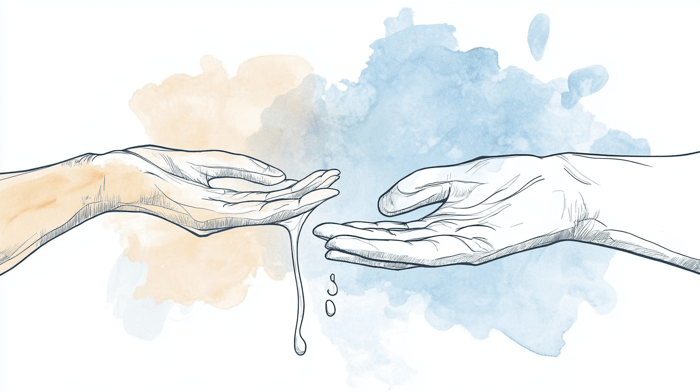Dealing with an unpleasant odor from your underwear can be both embarrassing and uncomfortable. It might also indicate something more serious happening in your body. Vaginal odor is a common issue for many women, but it’s important to know that it doesn't have to be something you simply accept. Understanding the causes of vaginal odor can help you take steps to address the issue and feel confident in your body once again.
In this article, we’ll discuss six common causes of vaginal odor and what you can do about them. We’ll also offer tips on preventing future odors, helping you feel fresh and comfortable.
What is Vaginal Odor?
Vaginal odor refers to an unpleasant smell that can come from the vagina and surrounding area. It occurs due to a combination of factors, including bacteria, sweat, and bodily fluids. While a slight vaginal odor is normal due to the vagina’s naturally acidic environment, a strong or unpleasant smell could indicate an underlying medical issue or infection.
It's important to remember that a slight smell is normal, but a noticeable or strong odor should prompt further attention.
Why Does My Underwear Smell?
A mild smell from your vagina is part of the body’s natural cycle. However, if the odor becomes stronger or abnormal, several factors could be responsible. Let’s explore some of the most common causes.
Poor Hygiene
Poor hygiene can contribute to increased vaginal odor. Not washing regularly or using harsh soaps can disrupt the balance of bacteria in the vagina, leading to an unpleasant smell. Additionally, sweating can increase vaginal odor because sweat contains bacteria that mix with natural vaginal secretions.
Wearing tight or synthetic clothing that doesn’t allow for proper air circulation can trap sweat and bacteria, increasing the chances of odor.
Bacterial Vaginosis
Bacterial vaginosis is an infection caused by an overgrowth of bacteria in the vagina, often leading to a fishy smell. Other symptoms include itching, burning, and discharge. Bacterial vaginosis typically requires antibiotics prescribed by a doctor.
It's important to treat this condition promptly as it can increase the risk of contracting sexually transmitted infections (STIs).
Yeast Infection
Yeast infections are another common cause of vaginal odor. This infection occurs when there is an overgrowth of yeast, resulting in thick white discharge and a strong smell. Yeast infections are typically treated with antifungal medications.
Trichomoniasis
Trichomoniasis is a sexually transmitted infection that can cause a foul-smelling discharge along with itching and burning. It is caused by the presence of trichomonas bacteria in the vagina and is treated with antibiotics.
Menstrual Blood
Menstrual blood contains bacteria that can mix with vaginal secretions, leading to an unpleasant odor during your period. Regularly changing tampons or pads helps reduce bacterial buildup and prevents odor.
Menopause and Hormonal Changes
Hormonal changes during menopause, pregnancy, or breastfeeding can cause an increase in vaginal odor. As estrogen levels decrease, so does natural lubrication, making the vagina more prone to bacterial growth. This hormonal shift can result in stronger odors.
Flower Power Tips for Preventing Vaginal Odor
To prevent vaginal odor, practice good hygiene by washing your vulva and vagina with warm water and mild, unscented soap daily. Wearing breathable cotton underwear allows for proper air circulation, reducing the risk of odor. It's also important to change out of wet clothes or swimsuits promptly after swimming or exercise to prevent bacterial buildup.
Avoid douching and scented soaps or sprays, as these can disrupt the natural balance of bacteria in the vagina and lead to odors. If your vaginal odor changes suddenly or persists despite these efforts, consult your doctor for evaluation.
Say Goodbye to Smelly Underwear with Our Safe and Effective Vaginal Suppositories
Flower Power’s Boric Acid Vaginal Suppositories are a safe, effective solution for addressing vaginal odor caused by yeast infections, trichomoniasis, and hormonal changes. These vegan, USA-made suppositories help restore the natural balance of bacteria in your vagina, reducing bacterial buildup and eliminating odor.
Easy to use, our suppositories offer fast relief, helping you feel fresher and more confident. Remember, if you experience persistent changes in your vaginal odor or symptoms like itching, burning, or unusual discharge, it’s best to see a doctor for further evaluation and treatment.











